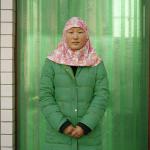In 1982, a group of women decided to start a women-run organization for Muslim women in Canada. These women established the Canadian Council of Muslim Women (CCMW) with the shared belief that Islam advocates the equality, equity and empowerment of women. Executive Director of the CCMW Alia Hogben sat down with Muslima advisor Valerie Behiery to discuss her organization’s work, and what lies ahead in the fight for Muslim women’s equality, in Canada and beyond.
IMOW: I am particularly struck by your organization’s central emphasis on inclusiveness both among Muslim women themselves—certainly a diverse group—and between Muslim women and the broader society. Would you say that this is a distinguishing characteristic of CCMW and one which has allowed the organization to thrive and become an effective voice on the national stage?
Alia Hogben: The organization has clearly articulated principles and objectives, which emphasize the fact that we are Canadian and Muslim and these are not in conflict. We hold the Canadian Charter of Rights and Freedoms as essential for us, and see no contradiction between human rights and Islam.
The principles are the equality, equity and empowerment of Muslim women. We are unequivocal about these and hold these dear. Surprisingly these have not been accepted by other Muslims—men and women. The gender equality is often hedged with provisos, but not for CCMW. We think there is misunderstanding about the meaning of equality as too many men and women assume this is “sameness” or that it eradicates differences between the genders. What equality truly means is that all are equal before God, and equal here on earth—equal under the law. Equality is having the options and opportunities which should be open to all.
Within CCMW, there is a deliberate effort to be inclusive and non-judgmental of others, even though we are strongly committed to our values.
Muslim women have to often navigate their way through a double discrimination, that of main-stream Euro-American perceptions of Muslim women and Islam, and that of rigid Muslim interpretations of Islam regarding gender. How does this affect your work at CCMW?
It is true that there are two difficult realities for us—one is from within the Muslim communities and the other is how non-Muslims perceive and treat us. In many instances, the issues within the Muslim communities are far more difficult to deal with.
There is a strong drive for conservatism; for a monolithic understanding of the religion; for rigidity and traditionalism. Sadly, this is fairly powerful, because the message comes with a lot of financial resources. The countries which lead are usually Saudi Arabia and Iran and their influence is widespread and pervasive.
The discrimination and prejudices of non-Muslim Canadians is a source of problems for us too. However, in Canada, we often feel that the laws, if not the practices, allow us to stand up for our rights. For example, the Charter’s value of gender equality and laws and policies regarding violence against women can be used to defend our rights.
As an example, the CCMW opposed the Quebec bill calling for banning the niqab - for women receiving government services- based on the fact that Muslim women will be discriminated against simply by the way they dress. As we are opposed to states, such as Saudi Arabia or Iran, which dictate women’s dress and behaviour, we object to Canada doing the same.
This is not that we agree or disagree with the niqab, but rather that it is about a woman’s freedom and choice as to how she shows her religiosity. We acknowledge that for some women this may not be their choice, but it is better to err on the side of women and choice.
The CCMW is active on many fronts expressing its views and taking a stance on controversial issues like polygamy, femicide, FGM, or on Canadian laws it deems discriminatory towards Muslim women. What would you consider to be the greatest overarching challenges currently facing Muslim women in Western contexts? And would they differ from those facing women living in Muslim-majority contexts?
The issues facing Muslim women globally are the same, but the degree of intensity varies. For example CCMW belongs to an international network, Musawah, which is comprised of members from about 40 Muslim majority and minority countries. Currently, Musawah is addressing the concepts of wilayah and qiwamah [male guardianship] and how these are present in family laws and affect the lives of Muslim women.
The other international network, Women Living Under Muslim Laws, has done a lot of research, and their work demonstrates the struggle against the unequal and unfair treatment of Muslim women the world over. Certainly some states have better family laws than others, but the overall issue remains.In terms of our national work, we have developed a number of pedagogical tools and resources that we have used across the country. They are available on our website and through our sister agencies. Currently we have a project –Common Ground- which is geared to Muslim youth. The objective is to have our youth work within their local communities on specific projectswith people of other faiths. It has been very successful.
The objective of Muslima is similar to that of the CCMW. It seeks to foster understanding between Muslims and non-Muslims, a binary maintained by the media, popular discourse, and also political events. You have worked to dismantle this binarism for many years. Have misunderstandings regarding Islam and Muslim women, in your opinion, increased or decreased over time?
I don’t think events happen in a progression of improvements. With the fact of immigration and the movement of peoples from countries to countries, the issues become complex and complicated. How does accommodation work? Should new immigrants and the older population both make adaptations? How much religious accommodation is essential and when does it slip into demands on both sides?
CCMW constantly tries to address issues openly and without being defensive, and we hope this is helpful to all parties. CCMW believes that Muslims need to be open to self -criticism, an essential characteristic for our own development. God in the Quran constantly commands us to use our reason and not to blindly follow. This is what is needed now for us Muslims.
You have tirelessly fought for a more just society for several decades. What message or advice could you offer our readers composed mostly of Muslim and non-Muslim women who have the same dream?
The message to Muslims and non-Muslims is that all of us must take responsibility for the welfare of all, regardless of belief, race, or color.
Without that dream we would not be passionate or committed to creating change. One of my great prayers is that Muslim men will not allow their mothers, wives, daughters, or sisters to be treated as less human than any man. Instead of the constant, intense focus on our sexuality, there would be more attention paid to our shared humanity.
There is so much to be done, especially within Muslim communities. A seemingly simple but ill-conceived insistence to make all Muslims more homogenous, more monolithic in our understanding of Islam, the negation of our diverse cultures and the conversion to become more Arabic are fundamentally damaging. They demand the eradication of diversity amongst us which is so contradictory to the teachings of the Quran.




